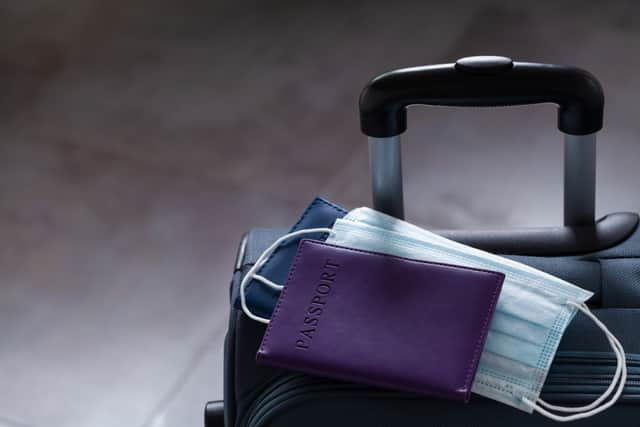Can you fly with Covid? Rules on self-isolation and travelling with Covid-19 symptoms, or positive test result
and live on Freeview channel 276
Most Covid restrictions in the UK have now been lifted, but what are the rules if you’re flying abroad?
Here’s what you need to know.


What are the current Covid isolation rules?
According to the NHS, you should try to stay at home and avoid contact with other people if you:
- have any symptoms of Covid and have a high temperature or you do not feel well enough to go to work or do your normal activities
- have tested positive for Covid - this means it’s very likely you have the virus
Advertisement
Hide AdAdvertisement
Hide AdIf you do have Covid, you can pass on the virus to other people for up to 10 days from when your infection starts. Many people will no longer be infectious to others after five days.
You should:
- try to stay at home and avoid contact with other people for five days
- avoiding meeting people at higher risk from Covid for 10 days, especially if their immune system means they’re at higher risk of serious illness from Covid, even if they’ve had a Covid vaccine
This starts from the day after you did the test.
If a child or young person aged 18 or under tests positive for Covid then they should try to stay at home and avoid contact with other people for three days. This starts from the day after they did the test.
Children and young people tend to be infectious to others for less time than adults and if they’re well and do not have a temperature after three days, there’s a much lower risk that they’ll pass on Covid to others.
If you are feeling unwell and do not test positive or test negative for Covid you should:
- try to stay at home and avoid contact with other people
- avoid meeting people at higher risk from Covid, especially if their immune system means they’re at higher risk of serious illness from Covid, even if they’ve had a coronavirus vaccine
What are the rules for flying?
Advertisement
Hide AdAdvertisement
Hide AdThe NHS Fit For Flying website said: “You should not travel if you are feeling unwell. Even if your symptoms are not related to Covid-19, you will increase your risk of being denied boarding or being quarantined if your illness is detected at entry or exit screening at airports, during your flight, or when crossing borders.”
The easyJet website says that if you have symptoms of Covid you should not travel or go to the airport.
For this specific airline, if you would like to fly at a later date, you can change your booking up to two hours before departure through the manage bookings section - but change fees will apply.
If you have tested positive for Covid, then you will need to complete the airline’s online Contact us form with further information about your situation and a valid PCR Test Certificate. Easyjet said it may, at their discretion, provide a voucher for future travel.
Advertisement
Hide AdAdvertisement
Hide AdYou will need to check with the airline you’re flying with to see their rules regarding this and their rules on wearing face masks on planes. You should also check the Covid rules and restrictions of the country you’re travelling to.
Comment Guidelines
National World encourages reader discussion on our stories. User feedback, insights and back-and-forth exchanges add a rich layer of context to reporting. Please review our Community Guidelines before commenting.
